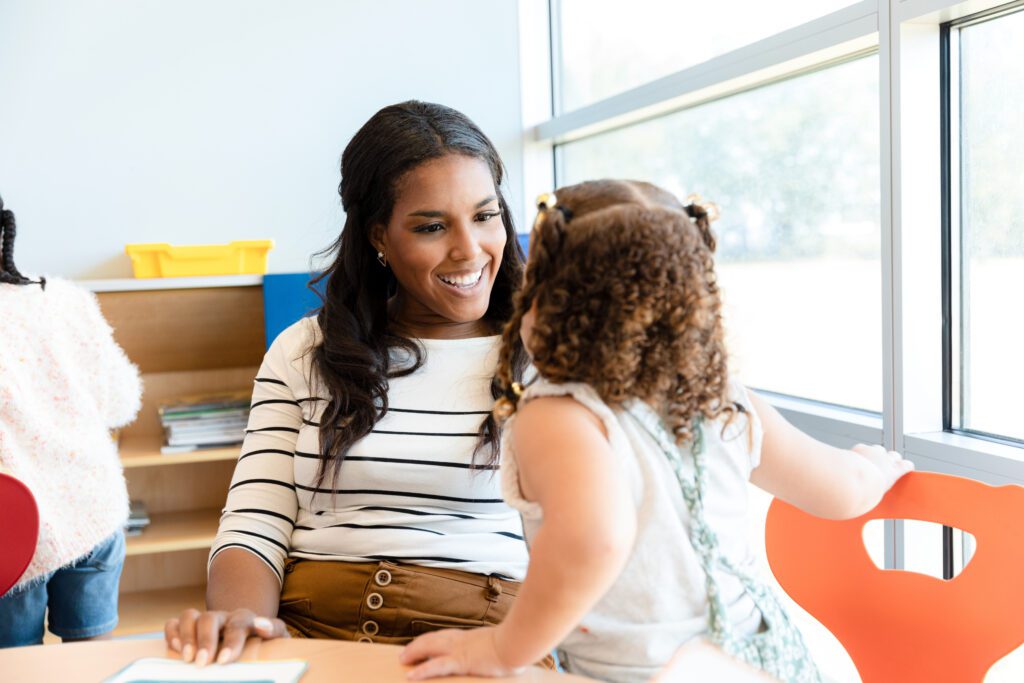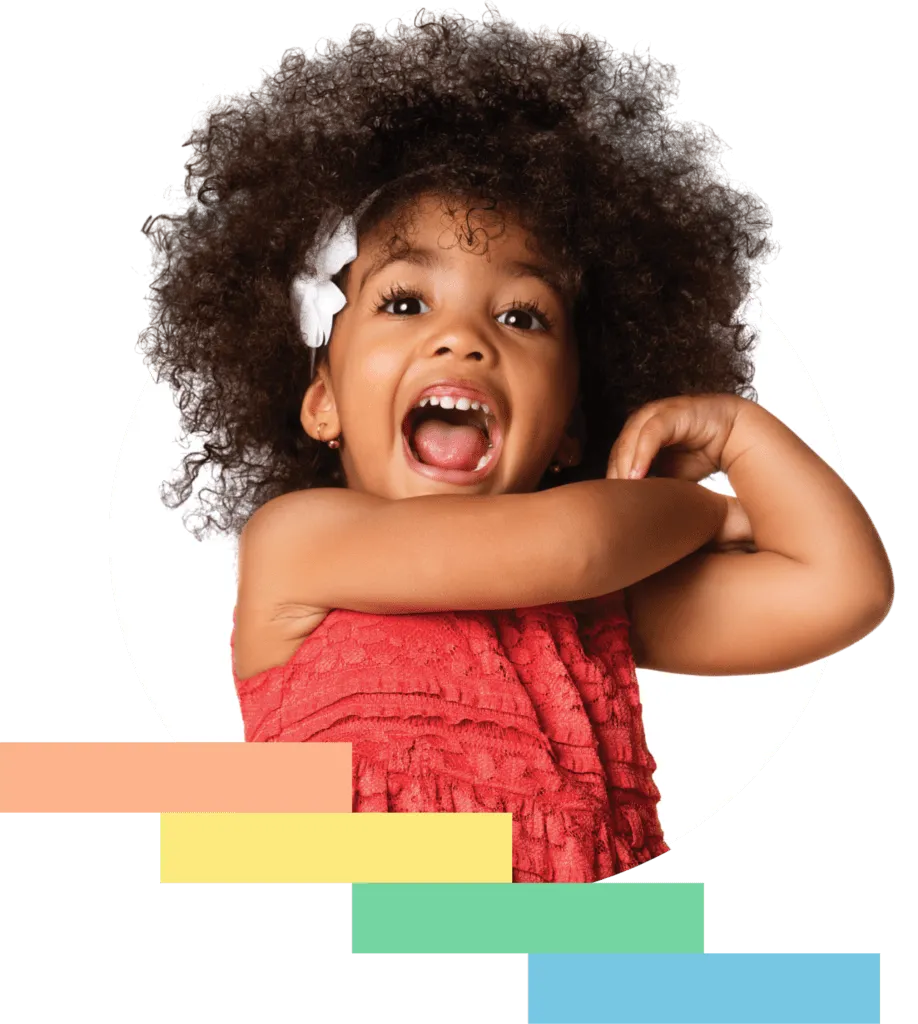Why It Matters: Curiosity Over Judgment


“Be curious, not judgmental,” says Ted Lasso, played by actor Jason Sudeikis, during a powerful scene from the show’s first season.1 As Ted plays an intense game of darts, he talks about how some folks have underestimated him his entire life and how seeing this quote painted on a wall helped him realize that none of the people who had belittled him were ever curious about him. Essentially, they thought they had collected enough “evidence” to reach a conclusion about who Ted was as a person without asking any questions, and then they acted on it unkindly.
I have rewatched this scene many times, and the message continues to resonate with the same impact and power. As important adults in children’s lives, it is essential that we both foster children’s natural curiosity about the world around them and be continually curious ourselves.
I was inspired to pause and reflect on how often I may have chosen or witnessed judgment over curiosity, both with other adults and while working with children, and how that impacted those relationships. I also pondered how, although we can choose to engage in thinking and thought processes, our thoughts during those interactions are often automatic, and those thoughts result in hasty emotions. Instead of making judgments based on our assumptions, curiosity can lead us to real understanding.
Greater Outcomes for Us and the Children We Serve
Choosing curiosity over judgment can have transformative effects on relationships with both children and adults, and in early childhood education particularly, it can have a great impact on the ways teachers support children. Consider how curiosity can help educators in the classroom.
Enhanced Empathy, Compassion, and Understanding
It is important to recognize that each human, big or small, has their own unique set of experiences and circumstances and is navigating the world through a distinct lens. When we are curious and engage in listening to understand vs. listening to respond during an interaction, it is quite a rewarding experience. To really understand children and families when we speak with them, it is helpful to ask ourselves questions to help us remain curious and open-minded.
-
-
- Who is this human?
- What experiences have they had?
- What motivates them, and why?
- How might I feel if I were them?
-
Improved Communication
In a recent conversation about choosing curiosity over judgment, a colleague offered me a simple but powerful change in a phrase I use often (“I like that”). She said, “When someone says something that resonates within, why don’t we just communicate that? We can simply say, ‘That resonates with me’ instead of ‘I like that,’ and elaborate on why it resonates.”
It got me thinking more about how adults can foster this kind of communication with children, how we can be more thoughtful and intentional with the words we choose to use (and introduce) with them. What might it sound like when we model this with children?
-
-
- You might say, “I noticed you helping Johnny clean up the blocks. I think he really appreciated your help. I am curious, how did you notice he needed help?” instead of “Good job helping Johnny clean up the blocks.”
- “Your painting is inspiring me to go for a walk outside later. I am curious about why you chose to paint the sun and sky,” is much more likely to encourage further conversation and sharing than “Thank you for painting that,” or “Nice work.”
- When a child has a conflict with a peer, saying something like “It sounds like you disagree with Tianna’s choice to not share the maracas with you during choice time. I wonder what you can say to Tianna to find out what she was thinking and why she chose not to share. What do you think?” can encourage the child to be curious about a peer and communicate about the problem and potential solutions, whereas saying “Tianna doesn’t have to share them with you,” or simply telling Tianna to share closes the discussion without meaningful resolution or understanding.
-
Growth and Development
Formative assessment is also rooted in curiosity. The GOLD assessment allows us to track, measure, and support children’s growth in meaningful and intentional ways, promoting understanding of children’s knowledge, skills, and abilities rather than judgment.
The assessment process guides us to observe and collect facts over time. When we look at [Checkpoint Start Date] – [Checkpoint End Date], it is what happens during that dash which matters most. A checkpoint end is exactly that: a point at which we pause, check, and give all our formative assessment data a summary for that moment in time. During that dash, it is helpful to ask ourselves questions that encourage us to be curious about how children are learning.
-
-
- Are we remaining curious as to what our data is telling us about the knowledge, skills, and abilities children are demonstrating?
- Are we utilizing our data and reports to help us plan meaningful activities that meet children where they are and extend their learning?
- Are we engaging in ongoing communication with families about their children’s progress?
-
More Time on What Matters: Seamless Curiosity
Teachers don’t have to take any extra steps or spend any extra time to bring the power of curiosity into their practice. Curiosity is our desire to learn—to understand, investigate, and explore. When we honor our desire to learn instead of using our assumptions to judge, we actually improve our ability to teach because we are now spending more time on what really matters: getting to know children well, with kindness and sincerity. Asking questions about who people really are and utilizing an observational assessment tool, such as GOLD, to investigate and learn about the children in our care helps us gain deeper insights into how to support children and their growth. This is vital information that helps streamline our efforts to meet children where they are and plan for learning experiences that make sense.
Throughout this school year, my hope for each of us is that we will be continually curious through all interactions. How exciting for us to have the privilege of helping to build children’s natural curiosity, and an important reminder (if needed) to renew it within ourselves. Thanks, Ted!

Move Beyond Measurement
Inform instruction without disruption by embedding authentic, observation-based assessment into each part of your day with GOLD.
Works Cited
- Sudeikis, J. (Writer), Lawrence, B. (Writer), Hunt, B. (Writer), & Lowney, D. (Director). (2020, September 18). The diamond dogs (Season 1, Episode 8) [TV series episode]. In B. Hunt, B. Lawrence, B. Wrubel, J. Becker, J. Ingold, J. Kelly, J. Lee, J. Sudeikis, K. Kroeger, L. Bowen, & L. Katzer (Executive Producers), Ted Lasso. Ruby’s Tuna; Universal Television; Doozer; Warner Bros. Television.